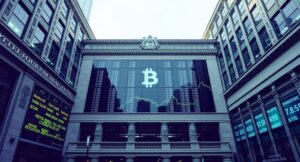The recent European Union regulation on preventing deforestation has sparked numerous debates, particularly among producers, traders and providers of legal services in the renewable energy sector worldwide. As the EU tightens control over imports of products linked to deforestation, companies trading commodities such as coffee, cocoa, soy, palm oil, and rubber face serious challenges. The goal of these measures is to stop deforestation linked to agriculture and exports and to reduce the emission of greenhouse gases into the atmosphere. This aligns with renewable energy initiatives aiming to curtail environmental impacts globally.
At the end of 2023, the European Parliament adopted a regulation imposing strict requirements to prove that raw materials imported into the EU do not come from areas subject to deforestation after 2020. Accordingly, all traders must provide information about the geographic origin of their products and ensure that their supply chains are deforestation-free products. This regulation enforces companies to implement sustainable practices.
Price Increases and Trade Challenges
These rules don’t come without a cost. Producers, especially those in South America, Africa, and Southeast Asia, will need to invest in tracking technologies and ensure compliance with the new EU regulations. These costs have already begun to reflect in rising raw material prices. The price of coffee, for example, has risen by as much as 60% since 2020 due to droughts, climate change, and supply chain issues. It is expected that the additional burdens from the new EU rules will further drive up prices. Similar trends can be seen in soy and cocoa, where prices have increased by 20% to 30% over the past two years.
A Closer Look at the Regulation
The regulation covers a wide range of products, such as coffee, cocoa, soy, palm oil, rubber, and wood products (including paper and furniture). The new rules require companies to use satellite imagery and geolocation data to prove that raw materials do not come from illegally deforested areas. According to the European Commission, these measures are expected to reduce CO2 emissions by at least 31.9 million tons annually. Regulations aim to protect around 72,000 square kilometers of forest – an area slightly larger than the Republic of Ireland. This is part of the EU’s broader deforestation due diligence initiative to ensure companies meet sustainability standards.
Wider Implications
The new European Union regulation on preventing deforestation particularly affect Brazil, the largest exporter of soy and meat to the EU, where more than 70% of deforestation in the Amazon is due to illegal logging linked to agriculture. This could slow imports of these products from countries with weaker oversight and regulations and redirect trade to countries that can guarantee sustainable practices.
Legal Advice and Opportunities for Adaptation
Producers and traders now more than ever need to adjust their business operations to meet new global standards. Legal consequences for non-compliance with these regulations include heavy fines, import bans, and loss of key markets, which necessitates thorough contract reviews and business arrangements. Legal consulting on sustainable supply chains is becoming crucial for businesses seeking to remain competitive and compliant with the new requirements.
Our legal team offers expertise in advising on the implementation of new EU deforestation regulation and strategies for sustainable business to help companies manage risks and take advantage of green market opportunities.
For more information on IA Law Firm’s expertise and range of services in the field of energy law, please visit: Energetika, rudarstvo i infrastruktura | IA Lawfirm
For more information on this topic visit: Regulation on Deforestation-free products – European Commission





